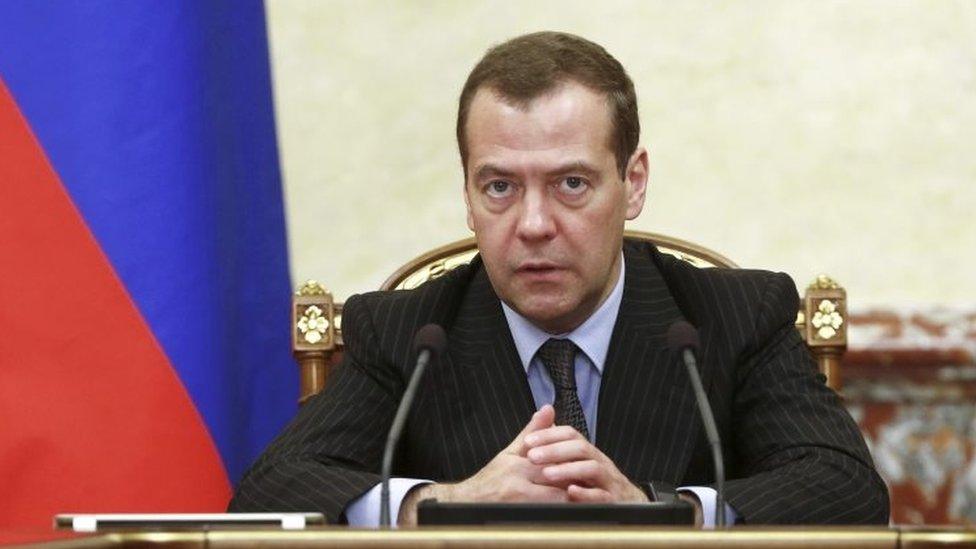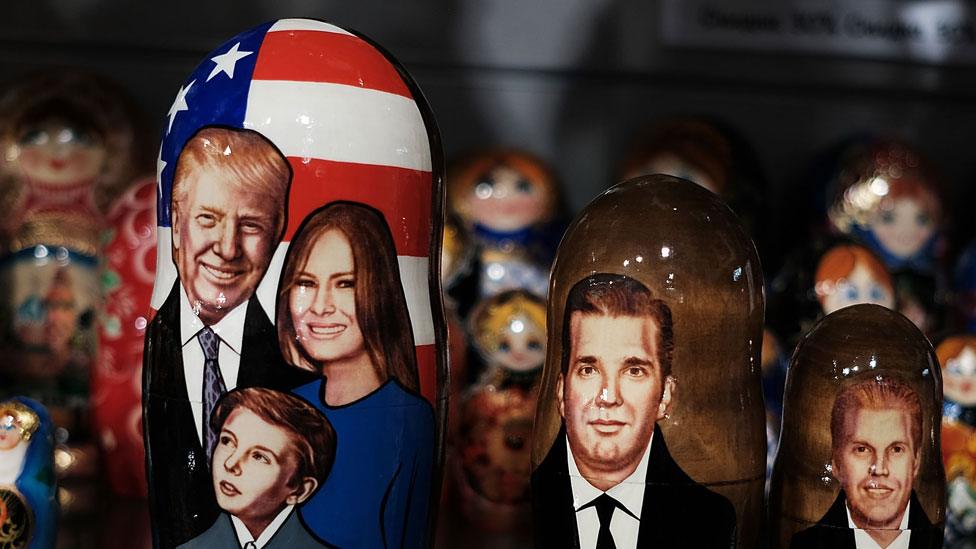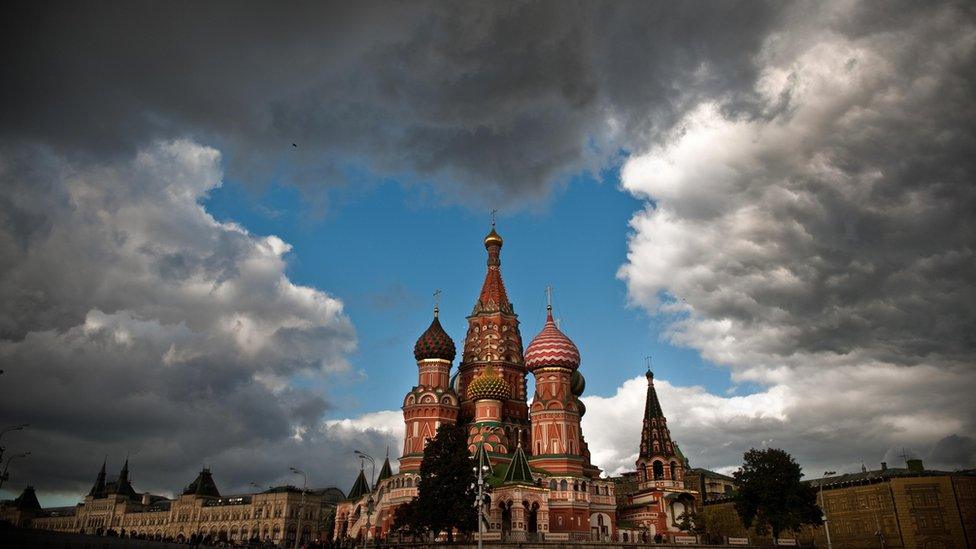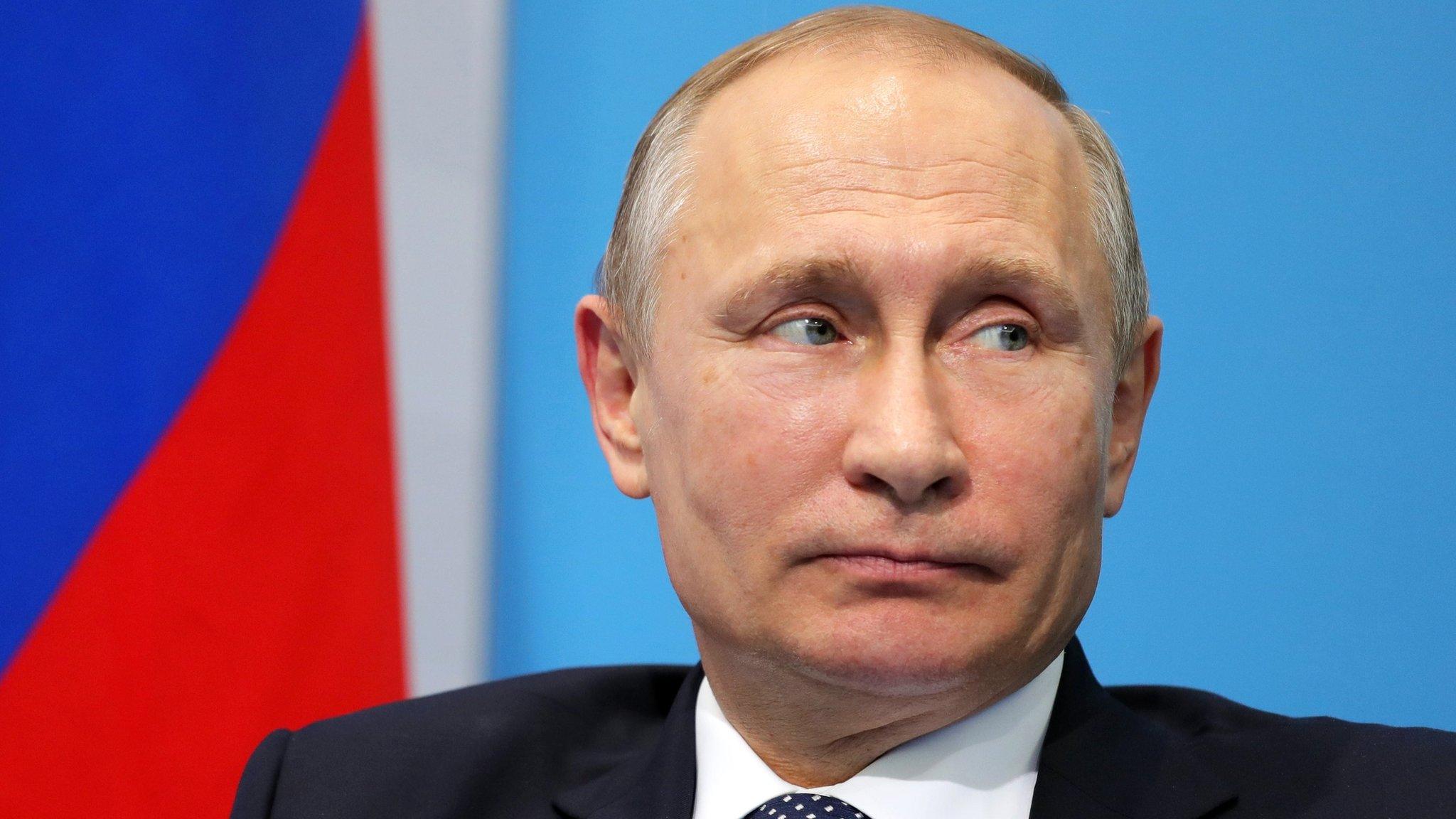US sanctions are 'trade war' on Russia, says PM Medvedev
- Published
All you need to know about the Trump-Russia investigation
Russian Prime Minister Dmitry Medvedev has said new sanctions imposed by the US are tantamount to declaring a "full-scale trade war" against Moscow.
He said the measures, signed by Donald Trump, demonstrated the complete impotence of the US president, who he said had been humiliated by Congress.
The law aims to punish Russia for its alleged meddling in the 2016 US elections and its actions in Ukraine.
Mr Trump accused Congress of overreach on the legislation.
In signing the Countering America's Adversaries Through Sanctions Act on Wednesday, he attached a statement calling the measure "deeply flawed".
The legislation limits the amount of money Americans can invest in Russian energy projects, and makes it more difficult for US companies to do business with Russia.
It also imposes sanctions on Iran and North Korea.
Iran said the new sanctions violated the nuclear deal and it would respond in an "appropriate and proportional" manner, reports the semi-official Isna news agency.
North Korea has so far made no public comments on the US move.
'Non-systemic player'
Writing on his Facebook page, external on Wednesday, Mr Medvedev said the sanctions package "ends hopes for improving our relations with the new US administration.
"The sanctions regime has been codified and will remain in effect for decades unless a miracle happens."

Dmitry Medvedev said Russia would "calmly" continue to develop its economy, despite the sanctions
Mr Medvedev also warned that the US Congress would take new steps aimed at removing President Trump - whom he described as a "non-systemic player" - from power.
Moscow - which denies interfering in the US presidential election - had already retaliated last week when Congress passed the bill by ordering the US to cut to 455 the number of staff at the US embassy and consulates in Russia - a reduction of 755 people altogether - and also by denying access to a US country house and a warehouse in Moscow.
Several European nations, including Germany, had been fearful of the economic consequences but European Commission President Jean-Claude Juncker expressed satisfaction, external over what he described as the softening of the bill after the EU had expressed its concerns.
"Moreover, the US Congress has now also committed to only apply sanctions after the country's allies are consulted. And I do believe we are still allies of the US," he said.
'I can make far better deals'
President Trump has repeatedly rejected any allegations that his campaign staff colluded with Russia to help him win.
And he accused Congress, which last week overwhelmingly passed the bill and sent it to the White House, of overstepping its constitutional authority.
"As president, I can make far better deals with foreign countries than Congress," he said.
Allegations by the US intelligence community that Russia interfered in the US election to aid Mr Trump are currently being investigated by Congress and a special investigator.

Trump takes on Congress
Anthony Zurcher, BBC News, Washington
Donald Trump has signed the bill but he's clearly not happy about it. Hardly surprising, as any president would probably object to congressional efforts to curtail executive power included in this legislation.
As is becoming routine, however, this administration didn't draw its battle lines in the expected way.
There were several "signing statements". The first reads like a standard legalistic description of a presidential action with a bevy of "yes, but..." reservations.
Another statement is decidedly more Trumpian, complete with a shot at Congress for not passing healthcare reform and a closing boast about his business empire and negotiating prowess.
Releasing multiple signing statements with somewhat divergent tones is unusual, to say the least, and could be an indication that, despite the efforts of new chief of staff John Kelly, the administration is still not speaking with a unified voice.

The sanctions, which are also in response to Russia's annexation of Crimea, come months after former US President Barack Obama expelled 35 Russian diplomats.
Republican Lindsey Graham praised the bill after it passed, pointing out that Mr Trump's options were limited since there were enough votes to overcome a presidential veto.
"President Putin did something that nobody in America could do. He united the Congress," the South Carolina senator told CNN.
Senior Russian parliamentarian Konstantin Kosachev said that Mr Trump was "capitulating" by not standing up to Congress.
What does body language tell us about the Trump-Putin G20 meeting?
- Published24 July 2019

- Published14 September 2018

- Published3 August 2017
